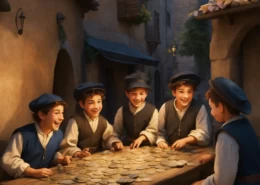בשבת לכאורה אסור וביו"ט בודאי שאסור. מקורות: הנה המקל עצמו משמש מבעוד יום כבית יד לארטיק ואז אינו מוקצה, כיון שיש לו שימוש ככלי אוכל, אבל בשבת מאחר ואינו ראוי עוד לשימוש זה לכאורה דינו כמוקצה, כעין קליפי אגוזים ועצמות שאין בהם ...!trpsttrp-gettext data-trpgettextoriginal=9739!trpenRead more!trpst/trp-gettext!trpen
בשבת לכאורה אסור וביו"ט בודאי שאסור.
Sources:
הנה המקל עצמו משמש מבעוד יום כבית יד לארטיק ואז אינו מוקצה, כיון שיש לו שימוש ככלי אוכל, אבל בשבת מאחר ואינו ראוי עוד לשימוש זה לכאורה דינו כמוקצה, כעין קליפי אגוזים ועצמות שאין בהם מוח ואינם ראויים למאכל בהמות המצויות וכיו"ב, שהם מוקצה בשבת, כמבואר במשנה בשבת ובשו"ע או"ח סי' שח, אבל מכיון ויש לטעון שמקל זה מעתה ואילך יכול לשמש למשחק האוסף של הילד יש לדון כאן מב' נידונים:
הנידון הא' דבר שכבר אינו ראוי לייעודו בשבת ונשתנה לייעוד חדש האם הוא מוקצה, והנידון השני האם ייעוד כזה של משחק ילדים בדבר שאין בו הגיון אפשר לומר שמערב שבת הי' דעתו על זה.
והנה לגבי הנידון הראשון מבואר בהל' יו"ט סי' תקא ס"ד באופן דומה בקליפי אגוזים שאחר אכילתן מיועדים להסקה שהם מוקצה מכיון שמערב יו"ט היו בטלין לאוכל, וכעי"ז מבואר שם במשנ"ב סק"ל ע"פ הרשב"א לגבי גרעיני תמרים שאם נאכלו ביו"ט הגרעינים הם מוקצה אע"פ שעכשיו ראויין למאכל בהמה, אבל שם האיסור הוא מטעם נולד דמאתמול היו טפלין לאוכל אדם ועכשיו הם להסקה או למאכל בהמה.
ולגבי שבת אינו מוסכם שיש איסור נולד באופן זה וכמ"ש במשנ"ב סי' תצה סקי"ז שעיקר ההלכה כהדעות שנולד בכה"ג מותר בשבת, וכן מבואר בשו"ע סי' שח סכ"ז ובמשנ"ב שם ס"ק קי ובשעה"צ שם (וציין שם לדברי הרמ"א בסי' תצה הנ"ל).
אולם לגבי הנידון השני הוא באמת בעיה דכיו"ב הורה הגרנ"ק (חוט שני ח"ג פ"ס עמ' קלג) לגבי גרעיני משמש המשמשים למשחק שאם פתח המשמש בשבת הרי הגרעין הוא מוקצה בשבת וכן הגריש"א חשש שמא לומר כן (שבות יצחק מוקצה פ"ה אות ה סק"ו).
ואולי יש לחלק בין דבר שמעיקרא לא היה לו שימוש עצמיי [כמו גרעין] ורק היה בטל לדבר אחר שהוא עדיין נחשב מוקצה ברמה הרעיונית של הגדרת החפץ, משא"כ דבר שמעיקרא לא היה מוקצה מחמת שהיה כלי [כמו מקל אכילה של ארטיק] ושוב נשבר ממה שהוא כלי וראוי לדבר אחר שלא היה יכול להיות לו ראוי בערב שבת, אולי בזה מודים שנכנס לנידון מה דקי"ל בביצה כ' ובאו"ח סי' שי שאין מוקצה לחצי שבת.
וע"ע בהל' יו"ט סי' תצח ס"ט מה שדן שם הבה"ל ד"ה אבל בשם הפר"ח לגבי בכור שנפל בבור, ע"פ דין זה של אין מוקצה לחצי שבת, ולפי מה שנקט שם הבה"ל למעשה בשם המאירי שמוקצה לחצי שבת חוזר ונראה רק בדבר שקרוב בדעתו של אדם שיחזור ונראה א"כ בניד"ד לא שייך לפחות בחלק מהמקרים.
ולעיקר נידון החילוק הנ"ל אם נימא דבדבר שהוא כלי מע"ש כן שייך לייחד אותו מאמצע שבת, הנה כדי לבוא להכרעה בזה צריך לברר מה ההגדרה של קליפי אגוזים שאינם מוקצה כל שמחוברים לאגוז.
דבמשנ"ב סי' תקא שם מבואר טעם הההיתר שהיה קודם לכן משום שהיו טפלין לאגוז שהוא מאכל אדם, והוא מבואר שם לענין גרעיני תמרים שהביא שם המשנ"ב, ומשמע דהוא גם על קליפי אגוזים המובא בשו"ע שם (ועי' גם באר היטב שם בשם הרא"ש), וכעי"ז מבואר במשנ"ב סי' תצה סקי"ז לגבי עצמות המחוברים לבשר, ולפ"ז ה"ה גרעיני משמש, הטעם שעד עכשיו לא היה נחשבים מוקצה משום שהיו טפלין למשמש שהוא מאכל.
ולפ"ז גם מקל ארטיק, הטעם שעד עכשיו לא היה מוקצה אם משום שהיה טפל לארטיק ואם משום שהיה כלי אכילה בפני עצמו, מ"מ עכשיו השימוש הוא שימוש מחודש שלא היה דעתו על זה מאתמול, ומשחק של אוסף ילדים הוא סוג שימוש שבלא ייחוד אינו נחשב שימוש [כמו שיתבאר].
ואע"ג דנולד מותר בשבת להלכה, מ"מ באופן זה שהוא שימוש שאינו מיוחד מאליו וצריך לייחדו א"כ לכאורה הוא מוקצה כמו שנקטו גדולי ההוראה לגבי גרעיני משמש.
ולהדיא הובא בשם הגרנ"ק שם דגם גרעין שהופרד מבעוד יום מהמשמש אם לא ייחדו אותו לשימוש המשחק הרי הוא מוקצה, וא"כ ה"ה לענייננו לגבי מקל ארטיק משומש, וכן יש להוכיח מדברי הפמ"ג סי' שח באשל אברהם סקע"ב.
וכ"ש ביו"ט שיהיה אסור כמו שנקטו הרמ"א והמשנ"ב בסי' תצה שם להחמיר בנולד כה"ג (וכ"ש להמחבר שם דאפי' מוקצה אסור ביו"ט).
אולם לנוהגים להקפיא בשבת במקום שמשתמשים במקל כזה להקפאה חוזרת (כגון ששוטפו לאחר השימוש) או לשימוש אכילה אחר, כמובן שאינו מוקצה, ולענין מי שאינו מקפיא בשבת מחמת שחושש לאוסרים להקפיא בשבת אם יכול לומר שאינו מוקצה מחמת שיש מקילים בזה, באנו בזה לנידון המשנ"ב בשם הלבוש על מוקצה מחמת חומרא וכמדומה שעיקר דעתו להחמיר בזה, וכ"ש לעניננו שהעיקר נוקטים לדידן להחמיר בהקפאה.
(ובגוף שי' הגרנ"ק יש לתמוה דהגרנ"ק מסכים בחוט שני שם שבבית שנהוג לתת לקטנים את גרעיני המשמש אינו מוקצה אם נפתח מע"ש דמסתמא מיועד למשחק הקטנים, ואעפ"כ אם נפתח בשבת סובר הגרנ"ק שהוא מוקצה מכיון שלא היה מיוחד לקטנים מבעוד יום, וצע"ק דאם נדמה זה לגרעינים שהם מאכל בהמה הרי הדין הוא שאם יש לו בהמות כאלה או שמצויים באותו מקום מבואר בסי' שח דגם אם נפתח בשבת שרי לפי מה דקי"ל שבשבת אין נולד, ויש לומר דכאן הוא חמור יותר, מכיון ששם הגרעינים באמת מיועדים להם מצד עצמותם אבל כאן כל העיסוק בגרעיני משמש למטרת תחרות בין הילדים הוא נגד השכל ואפי' לכדור שדנו בו המחבר והרמ"א לא דמי ששם המשחק הוא בעצם הכדור משא"כ כאן שהוא איסוף פסולת בעלמא והוא נגד ההיגיון והשכל, ולכן לא אלימא מה שמייחד מסתמא הגרעינים לקטנים כדי להפקיעו ממוקצה באמצע שבת, ומ"מ צ"ע למה נדמה לה, דאם נדמה לה לעצמות וגרעיני תמרה הרי מותר גם אם נפתח בשבת אם ראוי למאכל בהמה, ומה שאינו ראוי למאכל בהמה הרי מסתמא לא מהני ייחוד למשחק וכיו"ב אלא רק אם ייחד בהדיא בע"ש, וכנראה שהוא מצב ממוצע וכנ"ל).


